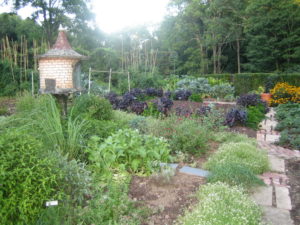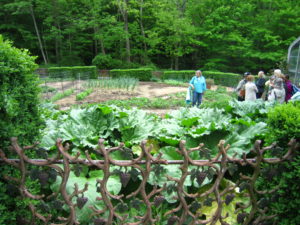Hello fellow readers,
Sara from Oxford NJ asked how to prepare a plot in her backyard for organic vegetable gardening come spring. She suspects the previous owners used chemicals as when they moved in, the lawn “looked like a golf course.” Kudos Sara. It’s smart to consider the prior use of chemicals when growing edibles.
Test your soil first
Soil tests done by local extension offices (recommended before installing any type of garden to be sure your plant choices fit the soil type) check soil nutrients, pH, and physical characteristics. However, identifying chemical contaminants requires specialized testing. Other countries are ahead of ours in the concern of chemicals in food production. Hence finding labs in other countries that test for over 400 different pesticide residues is readily seen. When you arrange soil testing with your extension office, ask if they can refer you to a local certified lab for chemical testing.
Another thought is to install raised beds using chemical-free borders such as rocks or natural lumber – not chemically preserved pressure-treated lumber used in decks. Then fill your raised beds with organic soil and compost.
A pea-seed home test to check for soil contaminants…
I recently had the pleasure of meeting Robert Sala, a self-described “amateur farmer,” though his knowledge of organic practices is beyond novice. He and his wife farm about an acre of produce as well as organic eggs. Buckhorn Creek Farm is the “unofficial name” of their farm located in White Township. Robert advised recent chemical introductions with more prolonged residual effects may be impacting large-scale organic soil and compost operations. He shared that pea seeds, sensitive to chemicals, can be used in a home test. Roll ten seeds in a damp paper towel and place them in a plastic bag and plant ten seeds in the damp compost or soil to be tested. Place both in a warm spot, no need for sun. In two to five days, check germination. If the same number of seeds, typically eight or nine, germinate in both the paper towel and the soil, you should be good to go. If fewer seeds germinate in the soil, there is likely a problem of contaminants.
While vegetables vary in terms of how deep their roots grow, twelve inches is an excellent standard depth of raised beds, advised Robert. He mentioned the idea of using COR-TEN (weathering steel) as a raised bed border. It’s the same steel, developed for the railroad industry, used in garden art. Only the outer level rusts, which would make a strikingly rustic garden edge. Veggie gardens, especially organic, are indeed works of art. Garden dilemmas? Askmarystone@gmail.com
I found this link to Paneltech Systems Ltd based in the UK who has nifty photos of garden borders using cor-ten weathering steel.




